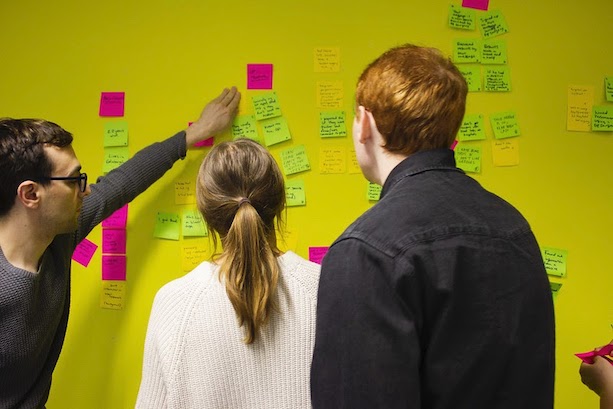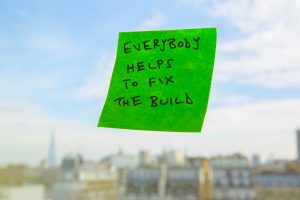
The Central Digital and Data Office has been working with the Department for Environment, Food & Rural Affairs (Defra) and other government departments to add a new point to the Technology Code of Practice (TCoP) on sustainability. This will help teams working on public sector technology projects to consider sustainability from the start of their project lifecycle.
Those familiar with TCoP might remember sustainability was included up until 2017 with projects required to ‘Meet the greening government commitments’. User research at the time showed there wasn’t a good understanding of what this meant for technologists, so we removed the point while ideas around best practice in this area developed.
The government sustainable technology community is far more established now, with Defra leading the cross-government Sustainable Technology Advice and Reporting (STAR) group. The STAR group has a broad membership, including representatives from across government who:
- share tools, techniques, and best practice on sustainable technology
- act as a departmental lead for technology sustainability matters
- provide support to the wider community as required
- complete their organisations annual sustainability reports
If you’re interested in finding out more about the STAR group, you can contact them at STAR@defra.gov.uk.
The case for iterative and user-centered policy
Publishing a policy does not make it a reality. Because of the history around the sustainability point, we know how important it is that the new point works and is adopted by users. To bring it back, we need to do things differently. There is often a risk in policy that we develop a policy, publish it, and then do not iterate or monitor it longer term. This can be problematic because if policies are misunderstood or misapplied, they won’t have the intended impact and can result in policy failure.
We’ve decided to develop the policy as we would approach a service or product, putting users first and following agile life cycles. Instead of just writing something and expecting departments to implement it, we’re looking to:
- trial and test the policy with users
- iteratively improve the policy to meet evolving user needs
Taking an iterative, user-led approach will allow us to explore the complexity of users’ experiences and constraints, offer the support needed to meet policy objectives, as well as understanding the different organisational dynamics.
Understanding barriers to content and policy
We started by researching our users and their needs. Insights from this research guided how we wrote the first draft. Following this, we tested the draft with users to identify any barriers to understanding and adoption.
We carried out highlighter testing with users involved in spend controls, sustainability, and technology project delivery. We asked participants to use different colours to physically highlight words or sentences they found unclear or confusing, or any parts of the policy their organisation would find difficult to implement.. We used these highlighter tests to prompt discussions on their concerns and gain insights into how different organisations operate.
This activity helped us make the content clearer and iterate the draft. We’ve also been able to better understand some of the constraints users might face, which we’ll need to monitor more closely when we pilot the policy.
Piloting the new sustainability point
For the pilot, we will start with a small group of departments and ask them to implement the new sustainability point. This means including it within their internal processes - particularly the spend control process - as if it were any other point within the TCoP.
The pilot will be a great opportunity to gather insights into how the point works in practical terms, monitor the concerns people raised when first reading the policy, and further develop good success metrics. While we’ve done a lot of work already, the pilot will also allow us to stress test any assumptions and assist users trying to follow the policy in a safe environment.
We want to explore how the policy feeds into departments different systems and processes and how different departments answer the questions posed in the policy. Testing and understanding all of this will help us further iterate the policy before moving it to public beta, and ensure the new point has the right impact.
Get involved
If you work for the UK government and involved in the spend control process, sustainability, or technology project delivery, you can take part in the pilot by contacting us at tcop-sustainability@digital.cabinet-office.gov.uk

4 comments
Comment by Conor Rohan posted on
Hi there - I tried to reach out on the tcop sustainability email address provided but I don't think I have permission to message this group. Let me know if you're still looking for pilot departments - I work in spend controls for DHSC!
Comment by Letizia Lodi posted on
Hi Conor - thank you for getting in touch and we're so sorry about that. We tested again the email with an external address and now seemed to work fine on our end. Would you mind trying again?
Alternatively, you can also find us on cross-government slack in the channel #tcop-sustainability or, if none of these options work, let us know what would be the best way to contact you and we'll be in touch!
Comment by Nick Lankester posted on
This is good to see as there is so much waste and pollution in Britain that needs to be tackled. Running a UK based ethical IT company, sustainable technology is a real focus for me. One of the least acknowledged issues that I see is the sourcing minerals used in the production of technology and also the recycling of outdated devices. If the government can make moves towards supporting computing devices constructed from ethically sourced materials (something of a rarity), the knock-on benefits for humanity and the Earth could be huge.
Kudos,
Nick
https://www.crucialweb.co.uk
Comment by George Cook posted on
Hi Letizia,
Love what you are doing!
May I ask, are you also hoping for a community benefit element in IT equipment refurbishing for re-use?
For example providing work experience, training and jobs for the unemployed from the refurbishing process?
As well as the refurbished equipment going to those in need such as young carers, homeless youth, hospices, charity volunteers, unemployed veterans and UK charities supporting schools in Africa?
Are you also including that each device given a second life through refurbishment means a new one does not have to be manufactured; each refurbished laptop saving the planet from 30kg of CO2 emissions?
(Calculated on the basis of United Nations E-waste Coalition A New Circular Vision for Electronics: Time for a Global Reboot 2019 & Harvard University Smaller, faster, greener: Examining the environmental impact of computation and the future of green computing, 2021).
Please will you let me know?
Thanks,
George M Cook
Honorary Chief Executive
Computers 4 Charity
http://www.computers4charity.org